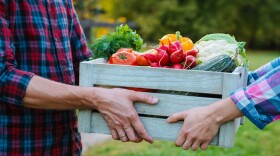In Wisconsin, more women are taking over farms and owning farm land - but they're not seeing the same outreach as men to help them learn best practices, including conservation. A new program aims to close that gap.
Despite changing demographics in agriculture, groups that support women say there hasn't been enough encouragement for them to sign up for incentives to adopt conservation methods on farms.
Kriss Marion, communications director for Wisconsin Women in Conservation, said the new coalition she's part of is taking on this cultural barrier.
"Until the '70s, women weren't guaranteed the ability to even own land or have access to credit in America," said Marion. "So, we're playing catch-up a little bit here, but we're playing catch-up really fast."
The coalition is helping women with technical assistance and other tips on accessing funding. It's hosting a series of virtual workshops this spring, including April 6 and 7.
According to the 2017 Census of Agriculture, women make up 35% of farmers in Wisconsin, a double-digit increase from the previous survey.
A leading partner for the project is the Michael Fields Agricultural Institute, where Conservation Policy Associate Alejandra Hernandez said the help is crucial.
She explained the application process for conservation incentives can be frustrating and time-consuming - and it can be more difficult when typical programming is male-centered.
"It's great to have programming that highlights that women are more than a farmer's wife," said Hernandez, "that they are land stewards, they're land owners, they're conservation professionals."
The online events, held on Zoom, feature women who have already gone through the process or have adopted environmentally friendly practices that help a farmer's bottom line as well as preserving natural resources.
Marion added if the industry wants to thrive for years to come, it should make sure everyone involved is on a path to success.
"We want to connect people to the resources that can make those dreams come alive," said Marion.
As the pandemic eases, the coalition hopes to conduct in-person workshops later in the year. A task force will also evaluate the effectiveness of the outreach.
The three-year-program is funded through a grant from the Natural Resources Conservation Service.






